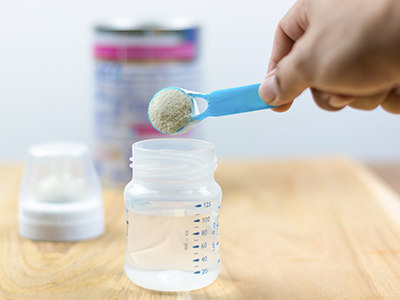Some newborn babies need extra medical care as they face a variety of health issues that may or may not have been known before their birth. In these cases, they are admitted to a hospital’s neonatal intensive care unit, or NICU, for specialized care.
Parents who have a newborn in the NICU face a unique set of challenges. They are in the midst of recovering from childbirth, while trying to be there for their new baby to make sure they are getting the care they need. Some may also have older children at home to care for, adding to the complexity they face.
During this difficult time, parents may feel helpless, but it’s important for new moms and dads to:
- Practice self-care. Remember simple ways you can take care of your own needs while hospital caregivers look after your baby. Relaxing in a shower or bath with aromatherapy (at home), distracting yourself with a good book or magazine, taking a walk or having a phone call with a close friend or family member are all ways you can care for yourself.
- Join a support group. Other parents with children in the NICU can be a source of strength for you. Ask your child’s care team if there is a support group you can join.
- Call on other hospital caregivers. Your hospital’s chaplain, social workers or child life specialists can be helpful resources as you navigate your child’s NICU stay. Request a visit from them.
- Trust the care team. Rest assured that NICU care teams are uniquely trained to provide essential care to newborns, and they are doing everything they can to make things comfortable for you and your baby.
Can I hold my baby in the NICU?
In the NICU, newborns need to be evaluated for any number of health concerns – or even recover from surgery. In some instances, parents may be able to hold their baby for brief periods or even have some skin-to-skin contact, known as kangaroo care.
However, some very premature newborns are too fragile to be held and touch can be stressful for them. Your child’s nurse or doctor will teach you how to hold and care for your baby, so you can develop your special bond. Hospital staff will also explain the machines and monitoring devices that are being used to care for your baby.
Feeding time
New mothers may be able to breastfeed their babies or either parent may be able to give their baby pumped breast milk or formula in a bottle. Many babies in the NICU are fed breast milk or formula through a feeding tube due to health concerns or early development. NICU nurses, as well as lactation consultants at the hospital, are available to help new moms with breastfeeding or pumping.
Additional support
Some hospitals offer additional support for caregivers of NICU babies, especially those experiencing mental health and wellness needs. Moms and dads may qualify for this type of help if they have:
- Stress or difficulties adjusting to having a baby in the NICU
- Perinatal mood and anxiety disorders (PMADs)
- Postpartum depression and/or baby blues
- Post-traumatic stress challenges
- Other mental health symptoms that can affect their baby’s care, health and wellbeing
Be sure to ask your child’s care team for mental health and wellness help if you are having any of the above issues. Even if they do not offer it in their NICU, they may be able to connect you with healthcare providers who can help.
Making memories
Although your baby’s time in the NICU may be stressful, it can also be a time to appreciate modern medicine and all the ways you will work with your child’s care team to nurture this tiny human being. Years later you may want to look back at pictures of your newborn’s first few days and weeks, so be sure to take some photos while they are in the NICU.
 https://riseandshine.childrensnational.org/wp-content/uploads/2026/02/olympics-feature.png
300
400
webteam
https://riseandshine.childrensnational.org/wp-content/uploads/2017/11/childrens_riseandshine_logo.jpg
webteam2026-02-05 16:41:512026-02-06 08:51:52What the Winter Olympics can teach our children
https://riseandshine.childrensnational.org/wp-content/uploads/2026/02/olympics-feature.png
300
400
webteam
https://riseandshine.childrensnational.org/wp-content/uploads/2017/11/childrens_riseandshine_logo.jpg
webteam2026-02-05 16:41:512026-02-06 08:51:52What the Winter Olympics can teach our children




















Leave a Comment
Want to join the discussion?Feel free to contribute!